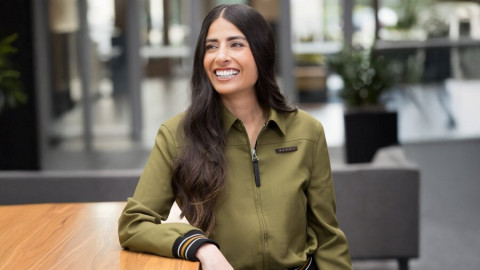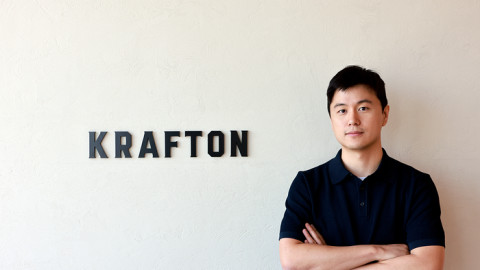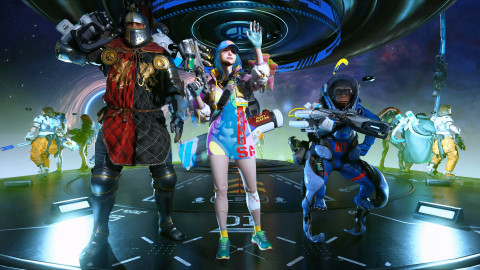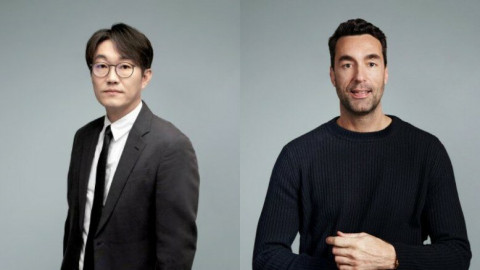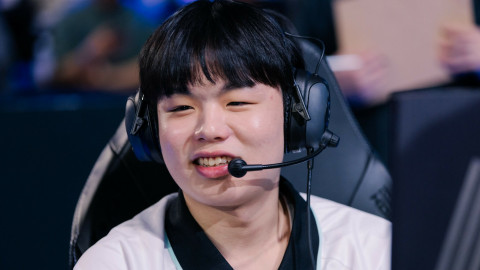
Following up from Part 1 of the interview, Inven Global's Chris Cuevo spoke with ESPN's Jacob Wolf during the NYXL homestand about his time as an esports journalist for ESPN, what he thinks is missing in esports journalism today, and advice for up and coming journalists.
Not to talk on everyone's behalf that ESPN Esports is one of the biggest publications right now in the industry. A lot of fans and people involved in esports journalism think you are one of the best esports journalists at this time. Do you agree with that?
I don't want to pat myself on the back here. I'm a really competitive person so when I first came in this space, there was myself, Richard Lewis, Josh Raven, Slasher, and Nilu Kulasingham (Dooraven) who were really on the news beat. We were super competitive with one another and I sought out then. It's been weird because a lot of those guys no longer do this anymore. Josh and Nilu, in particular, are doing other things. I was super competitive with all of them and I wanted to be better than them.
It was very much a drive to me about how I could get more information than them, how I could network differently than them, how I could present myself publicly in a way that to be able to make myself feel more welcoming to sources and others. I appreciate the way the people who feel that way about me and thankful.
Somewhat arrogantly, certain things I do are pushing the industry forward. My grandfather used to have an old saying is like, "Enjoy the smell of your own farts." I don't want to be in that position. I don't want to get to the point where I think I'm so good at what I do that I can't get better. I'm like always trying to improve and get better.
Was there anytime that you actually doubted yourself being where you are today? If you did, what things did you learn to assure yourself you're doing okay?
100 percent, I did feel that way and occasionally do feel that way. It's the nature of being super young in a profession. We have journalists coming out of graduate journalism school around my age. I've been doing this for nearly six years. It's a different change of pace.
I will say that the biggest thing for me is I didn't take a traditional path. I got out of high school early, and I went to school for engineering like computer information systems. My plan was when I turned 18, I was going to transfer to a different school, go down the computer science path, and that's was what I was going to do with my life.
By the time I did turn 18, I very much realized what I wanted to do, and it was this. I was already doing it, I was a freelancer for the Dot by the time I took my last semester in college, and I ended up dropping out, which is super unpopular with my family as you would imagine. But, I felt like it was the right risk to take. I moved 14 hours across country in a car later that year to Austin from Atlanta.
For me, a lot of the times, I do rethink those decisions. Was foregoing school the right call? Was not going to journalism school the right call? I have done a semester back. To be perfectly frank, at least in the program I did the semester online with, I didn't feel like I learned a lot that I couldn't learn in the field from good editors and good mentors and really leaning on them and improving. Case specific to me, not just 30 students in a class. That's not to devalue school at all, but rather for me, I am very much a hands-on learner.
Rather than being told what I can do, I'm much better trying to do it myself. Sort of my path is untraditional. Sometimes, I do feel like imposter syndrome and feel the way that I do. I try to remember my hard work and busting my ass got me here and that's the most important thing to me.
In esports journalism, you're known for breaking a lot of news. How did you learn how to develop that skill?
I've been a fairly extroverted person. Like I love talking to people. I mean, on the way down here, I've been stopped a couple of times because I make a point when I'm in a room to meet everyone. No single person is lesser than you. I think that sometimes some journalists can feel that way that they're better than a fan. Maybe one day, that fan becomes someone important. Like, you giving them the time of day, they're going to help one day down the road, right?
I saw somebody yesterday at an NYXL event where I met him when he was a college student at an event. Now, he works for the Boston Uprising. Very much it's important to give back, but also connect with people. At the end of the day, one thing that journalists do too often is everything to them is on the record and every conversation is recorder out and tape. 90 percent of conversations I've had never have a recorder on the table for them.
I value connecting with people because when you connect with someone off the record as a human, you can go back to them, and when you do need something, they're more willing to help you out because they understand your motivations. They get you as a person.
For me, it's always been about one being kind, two giving back, and then three, remembering the people you're talking to. Your sources are actually humans, not just someone you're seeking information from.
How do you develop that relationship with sources? How do they give back to make sure you're doing your job?
I call and email people all the time, even today. I go on LinkedIn, see that I have a friend connected to someone I'm trying to get in touch with. I'll shoot that friend a text or give them a call. I'll be like, "Hey, can you connect me?"
I've done that my entire career. I've always tried to be very confident in myself. When I have meetings or meals with billionaires or millionaires, I've come from a not affluent, very poor family at Atlanta, these people have millions times my net worth. But, I can sit there and have a confident conversation because I believe in myself, believe in my intelligence, and the ability that I can speak to them and relate to them. Even though, financially they're in a whole different class than I am.
To your point, though, I always tried to be understanding of people. I don't get mad when someone tells me that they can't talk about something or can't comment on something. That's okay. That's business. They have their justifications for feeling that way for not being able to talk about something. That's alright. I always tried to built trust because people are giving me all the background information to report on. They trust that I'm not going to screw them over. They trust I'm not going to put their name on something that they've specifically asked to not put their name over. They trust that I'm going to fact check it, make sure they're right, and not expose them to things.
I think it's important and constantly have those conversations off the record. Just be a good human being. I don't find it that difficult. It's like maybe I was raised in the South and the South are generally very hospitable people. I find it very easy to continually connect with people, then continually build relationships with people, even though there isn't a professional stake on the line all the time.
Honestly, this is great advice. I've been wanting to do something like you do for quite a while. I just don't know how to set that precedent.
75 percent of that is just putting yourself out there. Literally, all the confidence in the world is reaching out to someone and saying this is what I do and I would love to talk to you. Rather than just saying I would love to interview you for a story. I would like to just get to know you. That's half the battle, just getting to know someone, and building that trust and relationship.
Before we end the interview, what do you think is lacking in esports journalism today?
I think a lot of that is lacking, actually. I think a lot of people always want something on the record. They only talk to people when they want something from the journalist's perspective. I get it. I'm very privileged and fortunate in the fact that I work for a big employer that pays a nice salary. I don't have quotas. I get somehow those toxic things exist within journalism as whole with certain view quotes and numbers of pieces per month. I understand. I'm speaking from a position of a little privilege here.
But, but, there is nothing preventing you from doing that and fitting in the other stuff from a time perspective. I still write at 3 in the morning, 2 in the morning, just to make time for people throughout the day. Then, I'll stay up and write my pieces. When I can focus and I am by myself and it's quiet, it's about making the time. If you're really committed to this, it will come.
I was really fortunate to have got into this industry right before the financial boom. A lot of the people I've met who were like mid-tier challenger managers, those people now work for the billionaires. There's a little bit of the connection up. They introduce me to their bosses because I built trust with them. I acknowledged that I was at the right place, right time, but I don't think it's necessarily impossible to build a career still anymore.
I think there's a lot of opportunity in esports journalism. I would very highly welcome other people trying to beat me in stories. It makes me better. I like competing with people for things. But unfortunately, it's a "chicken in the egg" situation. It's not necessarily sure which one came first, the good journalist or the publication that's willing to support them properly and not be toxic and actually pay people properly. I don't know which one needs to come first or if they need to come at the same time.
I can say with pretty full confidence that there was someone who was breaking a ton of news immediately in any scene, I think that person would have a job pretty quickly. I think that those areas of opportunities exist outside of news, but they exist everywhere. You just have to be unique. That's the big thing. It's not like trying to be like everyone else, it's trying to be yourself, and being the best of yourself.
Do you have any advice for up and coming journalists?
Be unique. Find what you can do better than others. That's a lot of self-reflection and thinking about yourself. There's a stereotype that unfortunately is partly true that gamers are socially awkward. I was once upon a time too.
I think that not letting that hold you back from being a good journalist, like putting yourself out there, stepping over the social anxiety of it, introducing yourself to people, coming to events when you can, shaking every single hand in the room no matter who it be, that's important. There's a reputation that comes with that. Doing that, if you're straight out the gate, I think that's super important.
I've seen a lot of younger journalists and post-graduate journalists doing that in the past few months and I'm really happy to see that. That means if they do it right and they play the game by the rules, they're going to become successful. I want to see more successful journalists in this space.
Are there any up and coming journalists that you read at the moment?
I really like Adam Fitch. He's great from Esports Insider. Volamel, I love his work. He writes a lot about Overwatch, particularly when I don't have as much time to put in the research as he does. It's nice to read his and you get educated. Your colleague, Lara Lunardi, I'm so happy to see English LEC coverage continue on her back. It needs to happen, particularly in a world where unfortunately Darius is no longer working in independent media because I really liked Darius' work. I would point to those.
Within our walls, we've got some people we work with that I'm a big fan of. Ashley Kang is fantastic. No one right now, in my opinion, is more deserving of an award than her. She is busting her ass. I'm like personally collaborating with her on some things. She's collaborating more with ESPN this year and I am so happy about that. She deserves it. She's putting in the work and she's found what makes her unique. She's bilingual, she's interviewing these people you don't get to speak to English media as much, and she's delivering something that the Western esports fan needs.
Furthermore, Miles Yim is another who I love talking to. I spent a lot of time with him at BlizzCon two months ago. Miles is really bright and I think that he is definitely has a really good future in this space. He's freelances from us from time to time, he freelances with the Washington Post. What the Washington Post is doing with Launcher is really cool. I'm all about it. I think all those names I just named are going to be really successful given the time.
One last thing, is there anything that you want to say to your fans out there?
Yeah! Thanks for reading my work. It's once upon a time when I talked about this on a podcast earlier this week. My public perception is a lot different. I have a lot of people that are not professionals in this space, but rather, they are readers of mine. Or, they watch my videos. They support me vocally. I read every single one of those. It's very much appreciated. Thank you to those people who give me that support. That was not always there.
-

Writer @InvenGlobal | Freelanced at @overwatchscore @vpesports @GinxTV @Upcomer | Former CLICKON Media and Echo Fox.
Sort by:
Comments :0

